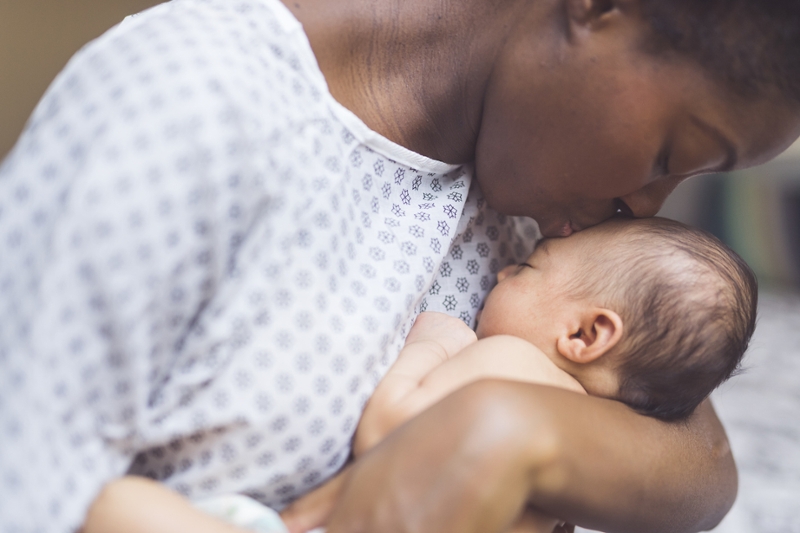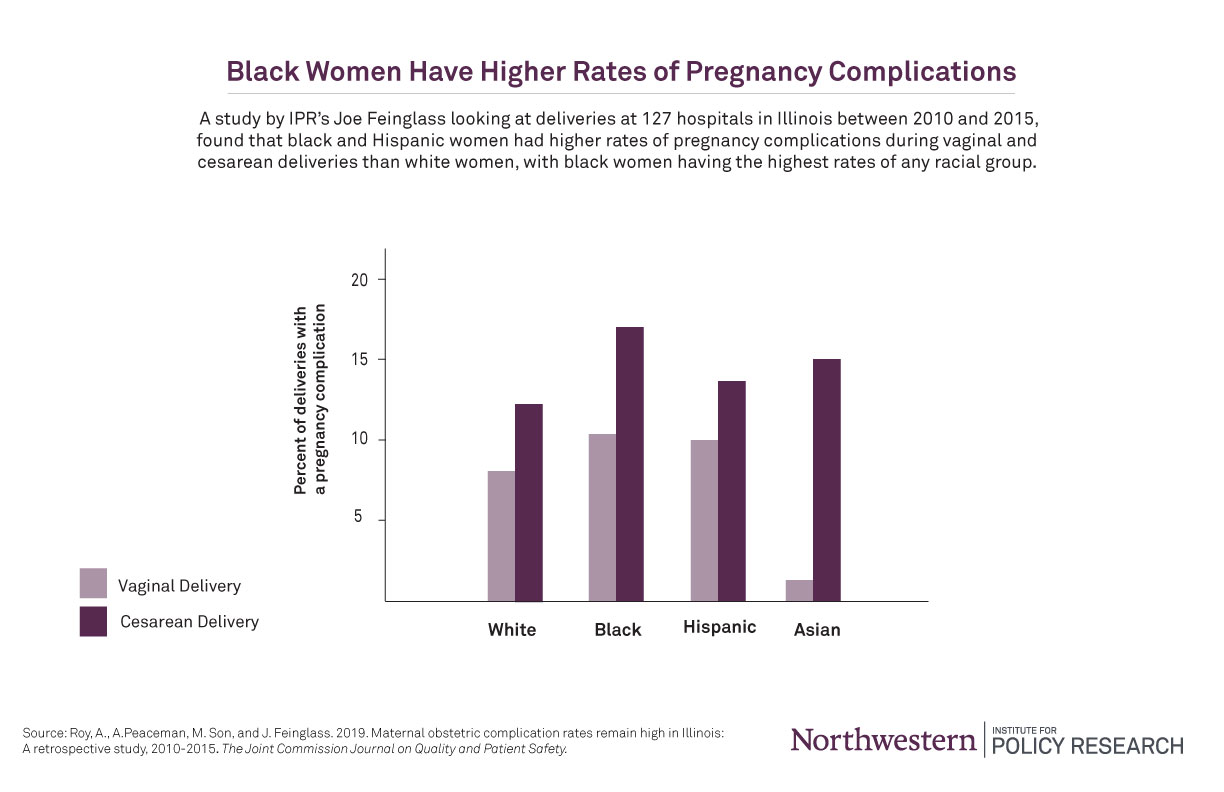Pregnancy Complications Rise for Illinois Women
Study by IPR and Feinberg faculty finds severe maternal morbidity remained stable, while other pregnancy complications increased
Get all our news

Pregnancy complications increased in Illinois between 2010 and 2015, find Feinberg researchers.
Severe maternal morbidity remained stable in Illinois between 2010 and 2015, while more women experienced other obstetric complications during childbirth, according to a recent study by Feinberg researchers, including research professor and IPR associate Joe Feinglass.
The researchers looked at data from 127 Illinois hospitals examining 792,122 vaginal and cesarean deliveries, or C-sections, over almost six years.
“The upshot was that severe maternal morbidity was the same during that time period—it didn’t go up and it didn’t go down—but the other obstetric complications were going up, which was concerning,” Feinglass said.

In recent years, the rates of U.S. women who died from childbirth or pregnancy-related causes has increased, according to the Centers for Disease Control and Prevention. Severe maternal morbidity—or the potentially life-threatening consequences women can suffer during deliveries such as a heart attack, hysterectomy, the need for a blood transfusion, or bloodstream infections—and pregnancy complications, such as severe hypertension or hemorrhages, are also on the rise nationwide.
Feinberg obstetrician Alan Peaceman, one of the study’s coauthors, said there are several reasons why pregnancy complication rates might be increasing. Obesity rates are on the rise, women are waiting longer to have children, and more effective fertility treatments are resulting in higher rates of twins and triplets, which also increase a mother’s risk for complications.
“Severe complications are bad for people and bad for the system,” Peaceman said. “It affects people's lives to have gone through something like that.” He pointed out that these complications can carry over into long-lasting health issues for mothers.
The study also reveals racial disparities in pregnancy complications across the state, with African American and Hispanic women experiencing higher rates of pregnancy complications than white women, according to the study. This finding aligns with other data showing that African American women are more likely to die during childbirth.

Feinglass hypothesizes that the racial disparities in pregnancy complications are “the effect of structural racism that black women experience in America,” which can take a physical toll on the body in the form of chronic stress. A previous IPR study has linked the racial disparities in birth outcomes like very low birthweight for African American women to stressful life conditions and racial discrimination.
Peaceman, who called the finding of racial disparities “troubling,” noted that it is difficult to separate out race without considering socioeconomic factors. While medical professionals are trying to identify the components that make pregnancy complications more likely, they still don’t have a solution for addressing the racial disparity in pregnancy outcomes.

Beyond having on impact on a women’s health, the study shows that complications during a delivery can lead to a costly medical bill. Pregnancy complications for a vaginal delivery cost $3,200 more for per stay versus an uncomplicated one, and the added cost increases to $6,200 for complications during a C-section.
Many pregnancy complications are preventable, according to the researchers. Feinglass believes that the best approach should include action by both medical professionals and policymakers. In February, Illinois State lawmakers filed a bill, SB1909, to provide additional healthcare support to women during pregnancy and postpartum. The bill includes requiring certain health insurance policies to provide coverage of medically necessary treatment for postpartum complications.
Peaceman highlights initiatives like the Illinois Perinatal Quality Collaborative (ILPQC) that works with birthing hospitals across the state to implement the best medical care to prevent pregnancy complications. He also emphasized that frequently measuring pregnancy outcomes on a national and local level is another essential step toward preventing complications during a delivery.
“People need to realize that pregnancy complications during pregnancy are more common than they thought and that we really need to focus our attention on the underlying problems to make our outcomes better,” Peaceman said.
Joe Feinglass is a research professor of medicine and preventive medicine and an IPR associate. Alan Peaceman is the chief of maternal fetal medicine and a professor in Feinberg's department of obstetrics and gynecology.
Published: May 1, 2019.


